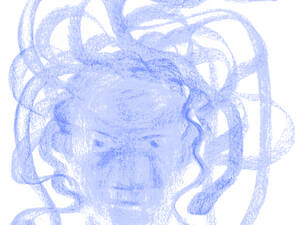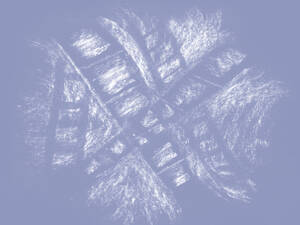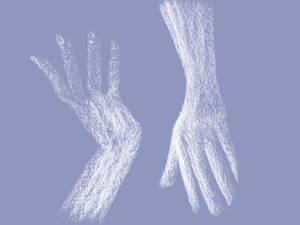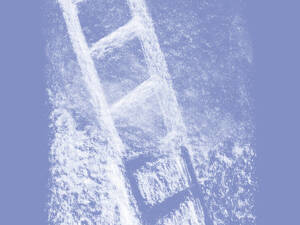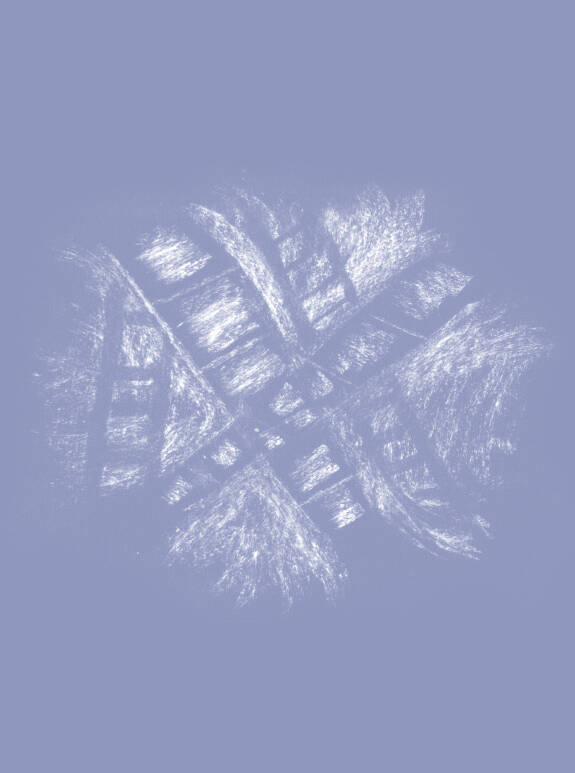
This article is part of a folio on Hélène Cixous. Click here to read the rest of the folio.
Often, when I read Hélène Cixous, something within me—what? or who?—cries out: I too I too I too. I too have a German Jewish mother (born the same year as Hélène) and an Arab Jewish father. Her father was born in Oran, Algeria; mine in Fès, Morocco—just a few hours’ drive before they closed off the border. Her mother’s mother was born in Osnabrück, Germany; mine in Hanover, in the very same district. In so many of Hélène’s accounts, offered in fragments throughout her oeuvre, there is so much I recognize.
Yet there is much in what she describes that I don’t—though perhaps I wish I did. Whatever cries out I too also says, It is different for me. This I too machine is always part of the process of reading, the book and its reader locked in a dynamic experience of convergence and divergence, understanding and misunderstanding; who was it who wrote that as much as we read the book, we are read by it? But the I too machine does not represent the full work of language; for that, it must meet a second machine. The multi-genre artist Laurie Anderson, who might be a younger sister of Hélène’s, helps me understand the nature of this other machine, and of reading-writing, in her song-poem “White Lily.” In her distinctively understated croon, Anderson renders a scene from Rainer Werner Fassbinder’s film series Berlin Alexanderplatz:
The one-armed man walks into a flower shop
and says:
What flower expresses,
Days go by
And they just keep going by endlessly
Pulling you into the future?
Days go by endlessly
Endlessly pulling you
Into the future?
And the florist says:
White lily.
In this perplexing act of translation, what is at stake is not correspondence, but a more complicated process of embrace and disavowal. As she moves from German to English, from film to poem, Anderson tenderly and humorously exposes the arbitrariness and insufficiency of symbols alongside our passionate investment in them. To me these lines suggest that writing is a kind of What flower expresses machine, which processes the material of life into signs that, like the white lily, open out from the concrete into the inexpressible.
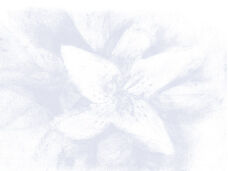
In the act of reading, the What flower expresses machine and the I too machine open onto each other in turn. It might go something like this: In Revirements dans l’antarctique du coeur, Hélène writes what may or may not be a quote from Flaubert in her little back notebook: “Si je suis encore en vie, c’est qu’on ne meurt pas de chagrin.” If I am still alive, it is that one doesn’t die of grief. My I too machine is immediately triggered: I recall my great-uncle, who once said, “Ein Glück, dass man nicht alles überleben muss, was man überleben kann.” Lucky we don’t have to survive all we could survive. I want to ask the machine: But how does “On ne meurt pas de chagrin” translate into “Ein Glück, dass man nicht alles ertragen muss, was man ertragen kann”? Am I translating “überleben” into “ertragen”? survive into endure? But the What flower expresses machine connected to my I too machine doesn’t let me dwell on the questions posed by these incommensurabilities. For all of the correspondence between our biographical details, the relationship with the reader that Hélène’s writing activates is not about that: It is the way she listens to words, following as they open in their own stubborn, versatile fashions, a respect for their capacities to wildly invoke rather than allured by the pretense of transparent description. In her memoir Gare d’Osnabrück à Jérusalem: “I spent fifty years drifting at sea very close to infinitely far from a City, from a coast, veiled, from a Visage, no, I meant to say Rivage [shore], Veil, Virage [bend], getting farther away while thinking I was approaching.” Language, Cixous knows, cannot be simply laid flat atop the world; language is of the world.
The I too machine, in its obsession with the particular, seems to be at cross-purposes with the What flower expresses machine, which pushes toward the universal. You never really know what dance—or what havoc—their conjunction will cause. Operating together, these machines help our stories flow between the solipsism of the personal and the tiresome abstraction of the universal. This is the space in which Hélène invites us to share the intimacy of her words, showing us how we might invent our own ways of reading-writing.
—Jo Mrelli
Language, Cixous knows, cannot be simply laid flat atop the world; language is of the world.
There was the spirit H—“the stylized outline of a ladder,” “the ladder writing climbs”—left accidentally in my tiny apartment, by Anna, who had known it once, the H, and who had found it again hovering between the pages of the book, Three Steps on the Ladder of Writing, shelved amidst the wooden ruins of the used bookstore where I worked. This was how I first met Hélène Cixous and her ladder, but also her letter H: “I write H and I hear hache (axe). H is pronounced ash in French,” Cixous explains, following sound into relation. I followed her ladder, axe, and ash to her three schools of writing—the Schools of the Dead and Dreams and Roots—which gifted me the gorgeous vision that it was the earth we slept with all along, above which as a child I lay awake in my first beds and wondered, What is a dream? To go to that school, Cixous writes, “One must walk as far as the night. One’s own night. Walking through the self toward the dark.” My gums darkened as I whispered along to her affirmation “of an internal force that is capable of looking at life without dying of fear, and above all at looking at itself, as if you were simultaneously the other.” I thought of the women who came before me, the ones who blackened their mouths with needles, ash, and soot. To read Cixous was to sip from a vial of perception-milk. To remember the braid inside my mother’s drawer. To feel with the intensity of my childhood selves the changing bedrock of my own life, where I am the shape of the “a” of my names, on its knees, bowing beneath the star, where so often I begin as a child in diaspora, digging in the dirt, asking, Where are my mothers? The ones who would have loved me? Taught me which leaves to chew to calm the heart? In “Coming to Writing,” Cixous describes her own experience as someone in diaspora, “already so much the inscription of a divergence,” at times believing she did not have the right to write: “I have no roots: from what sources could I take in enough to nourish a text?” And yet it was her daring, multiplicitous texts that modeled a way for me to think about my own divergences as paths toward my mothers.
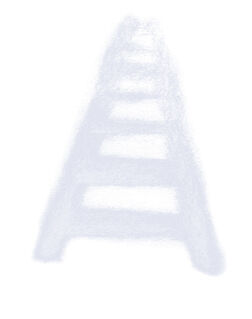
Cixous’s possessions and dispossessions flew through my rooms, changing things. Cixous, this stranger, who with the most exquisite discipline scrutinized her multiple identities in relation to the catastrophes of colonialism, genocide, and war—these conditions of her very being, this stranger born in Oran, with French citizenship during the French occupation of Algeria on the eve of World War II, to a North African Jewish father and a German Jewish mother, so intimately reading the world with the particular, associative material of her nearnesses, distances, positions, and paths. I read Cixous and began to think about writing as a practice of rigorous, wild attunement by which I might access or be accessed by the resonant sites of my own histories—arrangements of syntax, gesture, pitch signaling a path toward the submerged, entangled energies of our wisdoms. As she writes it, “Writing is this effort not to obliterate the picture.” With all of my divergences and my Black, secret sight, I continue to learn such possibilities with Cixous and with my others who, in their ways, reveal certain routes. Kamau Brathwaite saying: “all altering as I listen listen listen . from being / ‘Bajan’ into something other something else – and nearer nearer better known than / we had ever known before . so mething forgotten yes and far & far &” Toni Morrison asking: “One question is who is responsible? Another is can you read?” Listening with them, I could begin to put my hand out for the dream on the floor of the earth to smell my scent—Please let me pass—so that I might know some of the old scenes of my mothers who’ve gone on. To live among them, listening for notes of what they are and have been in life, in you, in me, in death.
“In the end, everything touches,” writes Cixous in “The Author in Truth.” And in “Coming to Writing”: “the music in me from elsewhere.” I am shaped by the intuitions that move between these two shores. I sleep. I dream dreams. I am dreamed. And each time, I lose my language a little into the bush. And each time, my word more worn. Small tears through which the voices of my mothers may climb carrying the leaves.
—aracelis girmay
To read Cixous was to sip from a vial of perception-milk.
In the spring of 1997, I read these lines from Hélène Cixous’s Three Steps on the Ladder of Writing:
We don’t know, either universally or individually, exactly what our relationship to the dead is . . . Each of us, individually and freely, must do the work that consists of rethinking what is your death and my death, which are inseparable. Writing originates in this relationship. In what is often inadmissible, contrary, terribly dangerous and risks turning into complacency—which is the worst of all crimes: it originates here.
For Cixous, writing should unsettle our mundane certainties by plumbing the depths of the unknown, down to a fundamental mystery of mortality: How does another’s death bear on mine? I was 23 and lonely, studying writing at a small school outside Roanoke, Virginia, where many people I encountered, having never met a Jew, sought to offer me salvation through their Lord. My worst fear as I lay on the floor of the log cabin I had rented was that, bloated with isolation, my own complacency would make me dull. Into that backwater strode the writer and punk icon Kathy Acker, to teach a course on creativity. Cixous was the only required reading.
Cixous’s call to map our entanglements with others and trace the shape of our shared fragility made my heart race. Acker held her seminar once a week, first in a classroom and then, when she could no longer stand for long, on the carpet of her campus apartment, eight of us gathered around her. She did not tell us she had been sick, but we knew. She taught with an intensity and warmth, an attention and a daring I had never before experienced. Together, we read in Cixous how language itself might enact a kind of death, in the other’s collapse into the self: “In life,” she writes, “as soon as I say my, as soon as I say my daughter, my brother, I am verging on a form of murder, as soon as I forget to unceasingly recognize the other’s difference.” Writing and reading about others, Cixous suggested, was both a necessary and appetitive act. Could we live with this violence? the book asked us. Could we live without it?
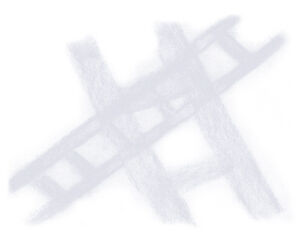
Soon I was enmeshed in a network of writers, mostly women, who, as Cixous wrote, “are descenders, explorers of the lowest and deepest”—those who knew how to use the exposure of suffering, theirs and others’, as a means to literary power. Through Cixous I found Ingeborg Bachmann, who taught me how violence begins in the intimate friction between two people, and Clarice Lispector, whose work is suffused with the urgency of her own impending death. In The Hour of the Star, she wrote, “So long as I have questions to which there are no answers I shall go on writing.” So I went on. But at my immortally young age, death and its connection to writing remained vicarious. I had not yet lost anyone. About six months later Acker died in Tijuana, Mexico, of metastasized cancer. She was 50. We were her last students.
I am now months from 50. I have gone to Cixous’s School of the Dead and her School of Dreams; I have thrown dirt on the corpses of those I love, and in nightmares I have watched them claw their way out, then woken in a pool of sweat. I have said my daughter, my brother. My brother has died, and from my teenage daughter I painfully learn to keep my distance. Lately, from age and anxiety, my hair falls out in clumps and I sweep it from the bathroom floor. When I open my books, I inhabit viscerally and hungrily the hurt of each confessing voice, living as I read what it means to say your death and my death are inseparable.
—Sarah Hammerschlag
For Cixous, writing should unsettle our mundane certainties by plumbing the depths of the unknown, down to a fundamental mystery of mortality: How does another’s death bear on mine?
In her classic essay “The Laugh of the Medusa,” Hélène Cixous calls for “woman” to “write her self.” In a culture in which women have been subordinated partly by depriving them of the power of self-representation, to write means to author an existence independent of patriarchal inscriptions of subservience. For Cixous, to write in a meaningfully feminine mode is not to express an interior self that men have repressed, but rather to channel a vast, impersonal force called femininity, to become inhabited by it. Writing taps into the pent-up power of women’s experiences, which have been unspeakable in the patriarch’s language. The task of “women’s writing” has remained for the most part unrealized since antiquity precisely because patriarchy has laced it with danger and terror. In the Western tradition, unrestrained femininity has been expressed through the Greek myth of Medusa, the snake-haired woman who turned men to stone with a simple glance.
While today’s self-appointed gatekeepers of “woman” continue to anxiously insist that the size of their gametes securely defines femininity, decades ago Cixous embraced the dangerous desire to become a woman without knowing in advance what that might entail. But what for Cixous is a bold leap is, from a trans woman’s point of view, a little obvious. Indeed, the trans woman’s petrifying feminist power lies in her surrender to the most outrageous desire—to become a woman—and her willingness to be rewritten in this image. She is, no doubt, a Medusa in the eyes of many, a monstrous part-woman with such startling force that her strength is easier to dismiss as phallic and perverse. She dares to leverage the nihilism of being despised into the destruction of the world made by and for men.
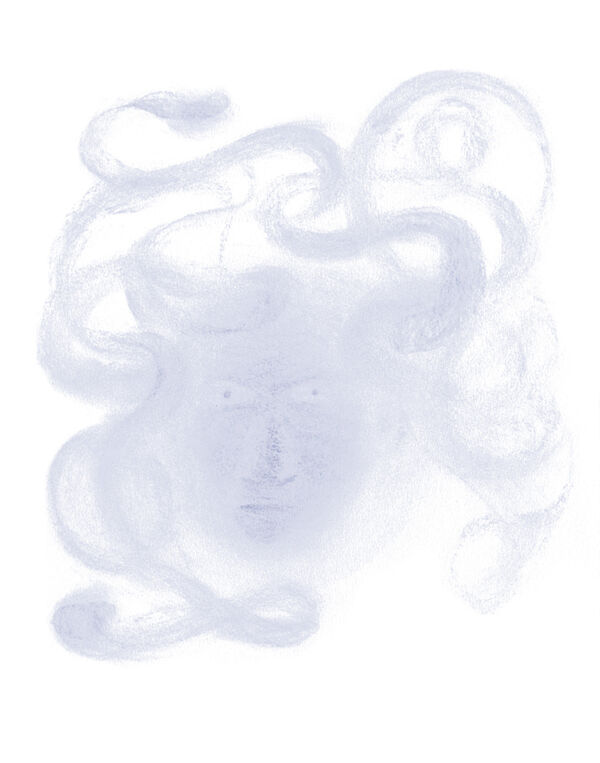
Still, when I first read Cixous’s essay in a college course on feminist theory, her use of Medusa landed flat for me. The gorgon’s laugh, which for Cixous would visit destruction on patriarchy and open a portal to the feminine, rang in my ear less as explosive than as insincere. The Greeks always lurk beneath empire’s marbled edifice as its rotting foundation. How could returning to the primordial scene of “Western civilization” accomplish much other than generating a feminist alibi for the West’s claim to the planet and all its peoples? Despite Cixous’s insistence that woman “is an integral part of all liberations,” her essay’s radicalism is conventionally colonial. As if the task were merely to validate Medusa’s power, not to bring the Greeks’ political project to its knees, she calls women “unacknowledged sovereigns” and writes of womanhood as a “unique empire.” Anyway, I told myself, I never needed a goddess to become a woman.
Then, a few years ago, in the throes of a hallucination brought on by the ketamine I’d been prescribed to treat my depression, I was shattered by a woman’s face piercing me in her fierce regard. I knew right away that she was Durga, a Hindu goddess with whom I had no prior relationship. She told me to stop dithering about the facial feminization surgery I had been considering—not to treat “gender dysphoria,” as my insurance plan would put it, but to rectify a centuries-old wrong in my maternal line. After countless generations of stoic Punjabi women separated from their desires in the service of family survival, I was to literalize their deferred wishes by letting the goddess’s face into mine.
What for Cixous is a bold leap is, from a trans woman’s point of view, a little obvious.
It was a terrifying prospect, especially for a nonbeliever. As far back as anyone remembers, my family has been not Hindu but Sikh; I myself have always been an atheistic sort of diasporic Sikh, unable to accept the monotheistic religion’s god. But the vision stayed with me long after the treatment was over, pushing me to look deeper into the context of Durga’s command. I learned that Guru Angad, who became Sikhism’s second leader in the 16th century, had been devoted to Durga until his conversion, and had led an annual pilgrimage to a volcanic Durga temple in Punjab known for its carnal dance rituals. After he left Durga to serve Guru Nanak, the founder of Sikhism, Guru Angad’s wife, Khivi, was relegated to the role of servant to the new patriarch, quietly providing domestic labor to those who journeyed to meet him. None of Sikhism’s ten gurus would be women. The foundational repression of Durga’s volcanic energy, duplicated in Khivi’s domestication, repeated itself in every subsequent generation.
I realized Durga’s order earlier this year. While most other trans surgeries amount to “get rid of that body part” or “give me that one instead,” in facial feminization surgery you do not receive a brand-new face; the surgeon works on and from the singularity of your visage. It hardly matters that my doctor knew not what animated her hands as she labored, letting Durga’s face inhabit mine through the scalpel, remaking me in her image. The initial recovery was unusually difficult. At times, in the hospital, I forgot why it had to happen this way and felt hopelessly lost. But now, when I look in the mirror, I perceive what I sense Cixous sought in Medusa. It’s not that I don’t see myself; it’s that my face ripples with the echoes of so many other women, too long denied.
In the face of countless brutal attacks on trans women in the Global North and Hindu nationalism’s outrageous assault on democracy in India, Durga’s divine wrath, long known to stoke the drive for liberation in the oppressed, animates my feminism, which hungers for something far more transformative than turning men into stone.
—Jules Gill-Peterson
Jo Mrelli is a poet and Joelle Marelli is a translator, an independent scholar, and the former head of progamme at the Collège international de philosophie in Paris. They bravely resist the temptation to exchange their places.
aracelis girmay is a poet who works across genres. In 2018, girmay was a finalist for the Neustadt International Prize for Literature.
Sarah Hammerschlag is the John Nuveen Professor at the University of Chicago Divinity School. Her most recent book, co-authored
with Constance Furey and Amy Hollywood, is Devotion: Three Inquiries in Religion, Literature, and Political Imagination (University of Chicago Press, 2021).
Jules Gill-Peterson is the author of Histories of the Transgender Child, a general co-editor at Transgender Studies Quarterly, and an associate professor of history at Johns Hopkins University.

